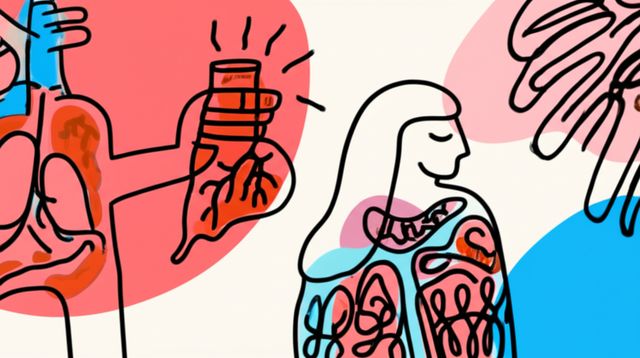Anatomy and Physiology
Anatomy and Physiology is the scientific study of the structure and function of the human body and its parts. It is a branch of biology that deals with the form or structure of an organism (anatomy) and the functions of its component parts (physiology). Human anatomy and physiology are closely related and most often studied together. Together, they provide essential knowledge about the complexity and amazing capabilities of the human body.
History of Anatomy and Physiology
The study of human anatomy and physiology dates back to ancient times. Early civilizations, such as the ancient Egyptians, Greeks, and Romans, made significant contributions to our understanding of the human body. However, it was not until the Renaissance period that significant advances were made in the field, largely due to the work of Leonardo da Vinci and Andreas Vesalius. In the 17th century, William Harvey's discovery of the circulation of blood was a major breakthrough in physiology.
Importance of Anatomy and Physiology
Anatomy and physiology are essential for a variety of disciplines, including medicine, dentistry, nursing, and physical therapy. They provide a foundation for understanding how the human body works and how to diagnose and treat diseases. Anatomy and physiology are also important for fitness professionals, personal trainers, and athletes, as they help to understand how the body responds to exercise and how to optimize performance.
Careers in Anatomy and Physiology
There are many different careers that involve anatomy and physiology. Some of the most common include:
- Doctor
- Nurse
- Physical therapist
- Occupational therapist
- Athletic trainer
- Fitness professional
- Personal trainer
- Medical researcher
- Health educator
- Pharmacist
The specific job duties of these professionals vary, but all of them require a strong understanding of anatomy and physiology.
How to Learn Anatomy and Physiology
There are many different ways to learn anatomy and physiology. Some people choose to take courses at a college or university. Others prefer to learn online or through self-study. There are also a number of books, articles, and websites that can be helpful.
If you are interested in learning anatomy and physiology, there are a few things you should keep in mind. First, it is important to be patient and persistent. Learning anatomy and physiology takes time and effort. Second, it is important to find a learning method that works for you. Some people prefer to learn by reading, while others prefer to learn by watching videos or doing hands-on activities. Finally, it is important to stay motivated. Learning anatomy and physiology can be challenging, but it is also very rewarding.
Online Learning
Online courses can be a great way to learn anatomy and physiology. They offer a number of advantages over traditional classroom-based courses, including:
- Flexibility: Online courses allow you to learn at your own pace and on your own schedule.
- Convenience: Online courses can be accessed from anywhere with an internet connection.
- Affordability: Online courses are often more affordable than traditional classroom-based courses.
If you are considering taking an online course in anatomy and physiology, there are a few things you should keep in mind. First, it is important to make sure that the course is accredited by a reputable institution. Second, it is important to read the course syllabus carefully to make sure that it covers the topics you are interested in. Finally, it is important to make sure that you have the time and commitment to complete the course.
Conclusion
Anatomy and physiology are essential for understanding the human body and how it works. There are many different ways to learn anatomy and physiology, including online courses, classroom-based courses, and self-study. The best way to learn anatomy and physiology is to find a method that works for you and to stay motivated.


